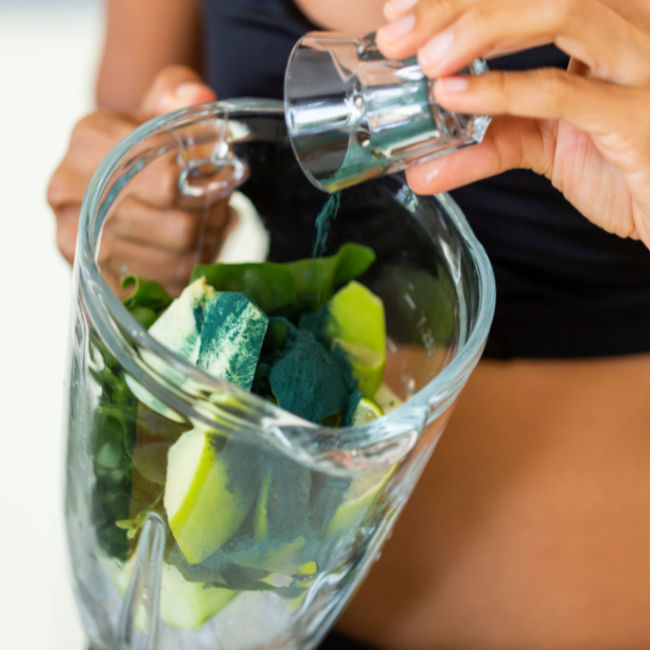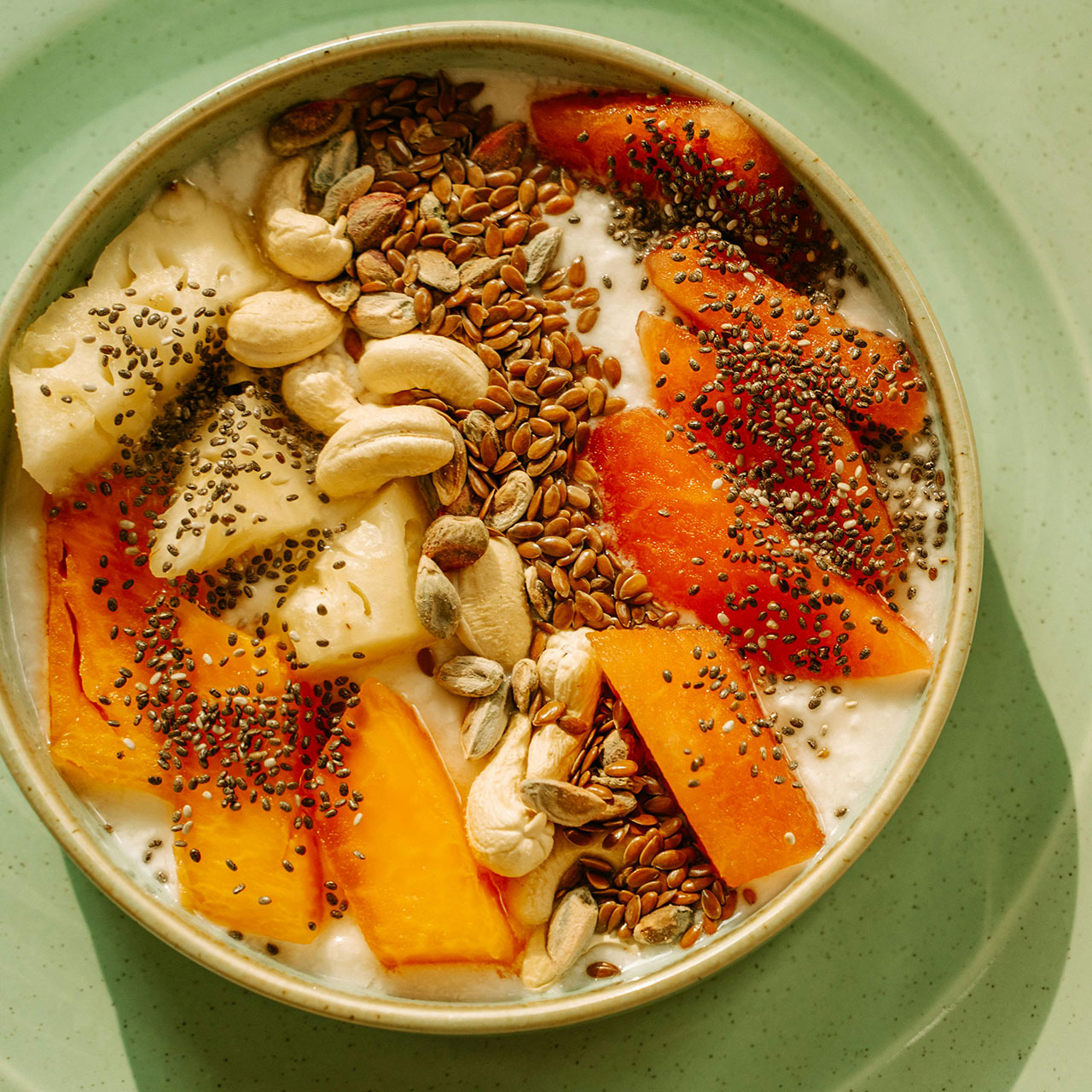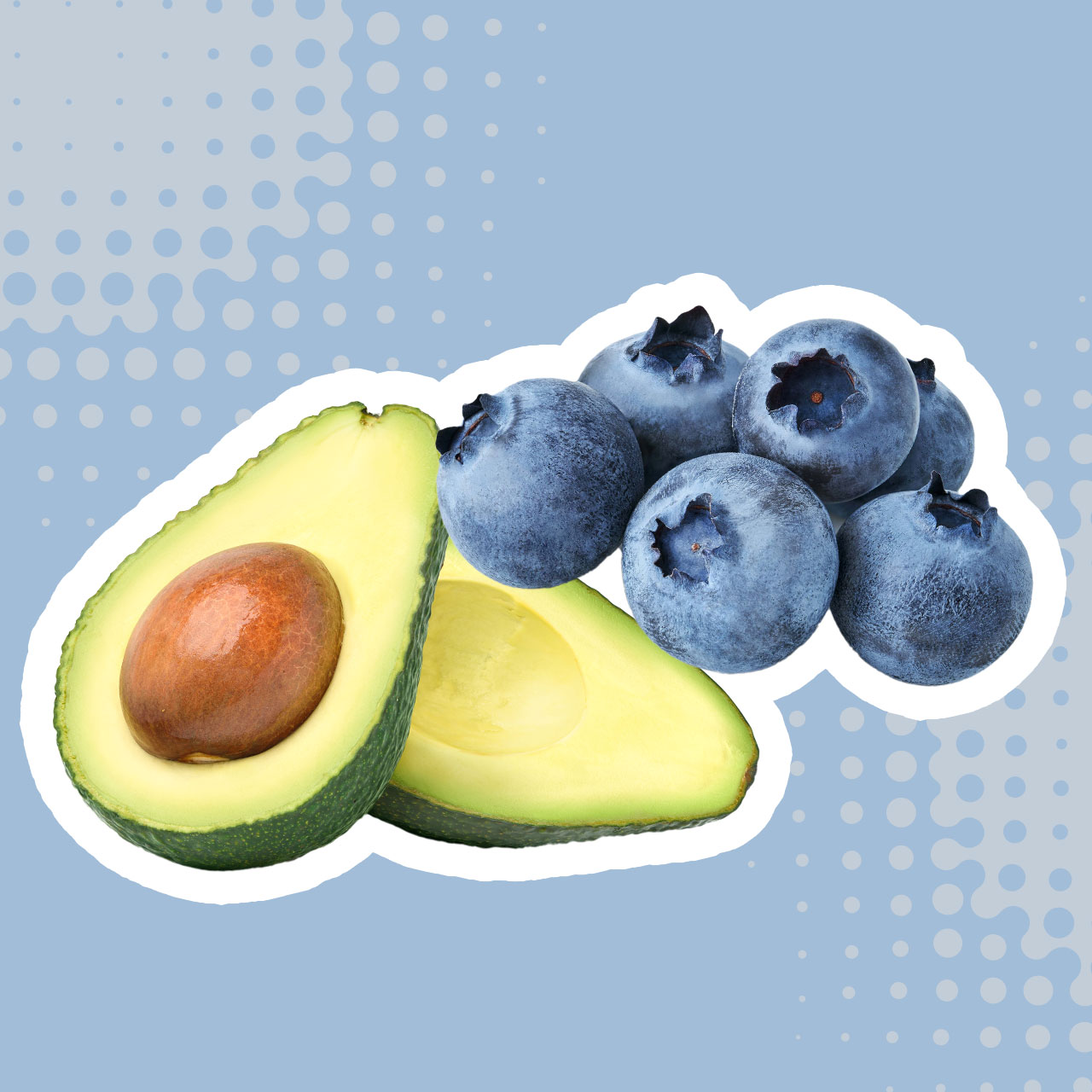There’s a new superfood in town! If you’re looking for a way to spice up your morning smoothie with great flavor and unparalleled health benefits, experts say it’s time to hop on the algae bandwagon. This surprising nutrient-packed food offers everything from gut health to lower cholesterol—and the best part is that, believe it or not, it’s super easy to incorporate into your diet.
To learn more about this highly nutritious plant, we spoke to Dr. Matthew Posewitz, Biochemist for GEM, and Lydia Carron, RD, Dietitian for We Are The New Farmers. They told us exactly what algae is, why it’s so great for your overall health, and some of the best ways to eat it.


What Is Algae?
First thing's first: If you're going to be putting something into your body, it's only natural that you'll want a little clarification on what, exactly, that thing is. Luckily, Dr. Posewitz broke down what algae is, how it grows, and why it can be so nutritious. "Algae includes a broad range of aquatic organisms," he notes, adding that most of these organisms only need CO2, sunlight, and a bit of nutrients to grow. "They are able to transform these inputs into the molecules of life, including amino acids, fatty acids, and carbohydrates," he explains. Who knew?!
While there are tons of algae out there that you can eat, Dr. Posewitz says spirulina and chlorella are the most common edible varieties. Carron describes spirulina as a "protein-rich, blue-green algae that has existed for approximately 3.6 billion years and been used as a food source for centuries." And when you hear about all the health benefits of this surprising food, you'll want to give it a try for yourself as soon as possible.
What Are The Health Benefits Of Algae?
So, what nutritional value can algae offer? As it turns out, a better question may be what nutritional value can't it offer? Dr. Posewitz says this food source is packed with nutrients and health benefits. "Depending on the species, almost all dietary needs can be satisfied by algae," he points out. "Essential amino acids and essential fatty acids are common products. Additionally, a variety of antioxidants are typically present in algae." Nice! Maintaining an antioxidant-rich diet is a great way to lower your cholesterol, keep your body protected from free radicals, and prevent serious health issues like heart disease and cancer—pass the algae, please!
As far as spirulina goes, Carron says this species is "our planet's richest source of plant-based protein," noting that it also "contains antioxidants, phytonutrients and probiotics and is considered a nutraceutical, which means it carries additional health benefits." This nutrient-rich ingredient contains a plethora of vitamins, including provitamin A and vitamins C, D, and E, which Carron explains are "important for energy production, immunity, eye health and bone growth and development."
But it doesn't stop there! Spirulina also packs in the minerals with iron, calcium, chromium, copper, magnesium, manganese, phosphorus, potassium, sodium and zinc. "It is very rich in electrolytes," she adds, explaining that this can help with fluid balance, bone health, energy production, and gut function. Speaking of gut health, Spirulina is also a probiotic, meaning it can promote a healthier, more diverse and balanced gut microbiome by adding more beneficial bacteria and stimulating microbial growth.
Last but not least, algae like spirulina is fantastic at fighting inflammation and helping your immune system thrive. Spirulina strengthens the immune system by filling in gaps of micronutrients deficiencies," Carron explains. "Specifically, it helps with the production of immunoglobulin A, which is the first line of defense against any infection that comes its way. Spirulina also increases the number of killer cells that help with antiviral immunity." Honestly, where has this plant been all our life?!

Incorporating Algae Into Your Diet
Okay, so now you know algae is a must in your diet. But how, exactly should you start consuming it on the daily? Whether you buy it fresh, frozen, dried, or as a daily supplement, there are a few methods you may want to give a shot.
Dr. Posewitz and Carron both note that many people choose to add Spirulina to their smoothies. Throwing a few cubes of We Are The New Farmers' frozen spirulina into your blender is a simple, tasty way to do this—we've tried it for ourselves, and we have to say it gets a gold star rating! Carron offers a great recipe:
2-3 of New Farmers frozen spirulina cubes
2-3 ice cubes
1 frozen banana
1 cup of almond milk
½ tbsp of flax oil
Dash of vanilla extract
Dash of stevia
But if smoothies, aren't your thing, Carron has tons of other tricks up her sleeve, too. She says fresh spirulina can be smashed into your avocado toast, mixed into cream cheese for a tasty bagel spread, or even added to yogurt. Frozen spirulina makes a great addition to homemade hummus, salad dressing, grain bowls (especially when paired with pesto!), or even your favorite nut milk latte.
For a simple treat you can pop into your mouth on your way out the door each morning, Dr. Posewitz recommends opting for a high nutrition bite like GEM varieties, which are available in a range of flavors to target a number of health needs. (P.S., these get our seal of approval, too!)
No matter how you take your algae, it's definitely worth a try. As Dr. Posewitz concludes, "Algae have a potentially important role to play in human nutrition and are likely to gain an increased role in human diets."


























